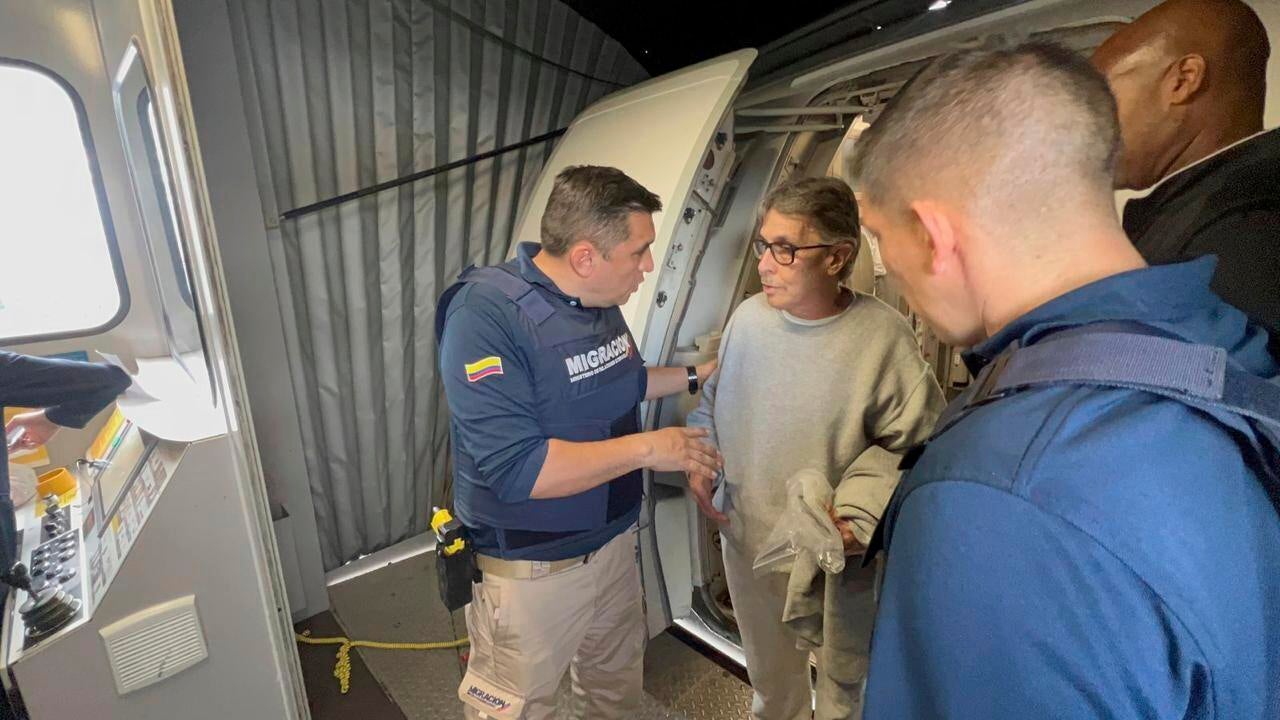Legendary drug lord Fabio Ochoa is deported to Colombia after spending two decades in US prisons
One of Colombia’s legendary drug lords and a key operator of the Medellin cartel has been deported back to the South American country, after serving 25 years of a 30-year prison sentence in the United States

One of Colombia’s legendary drug lords and a key operator of the Medellin cartel has been deported back to the South American country, after serving 25 years of a 30-year prison sentence in the United States.
Fabio Ochoa arrived in Bogota’s El Dorado airport on a deportation flight on Monday, wearing a grey sweatshirt and carrying his personal belongings in a plastic bag.
After stepping out of the plane, the former cartel boss was met by immigration officials in bullet proof vests. There were no police on site to detain him — an indication he may not have any pending cases in Colombian courts.
In a brief statement, Colombia’s national immigration agency said Ochoa should be able to enter Colombia “without any problems,” once he is cleared by immigration officers who will check for any outstanding cases against the former drug trafficker.
Ochoa, 67, and his older brothers amassed a fortune when cocaine started flooding the U.S. in the late 1970s and early 1980s, according to U.S. authorities, to the point that in 1987 they were included in the Forbes Magazine’s list of billionaires.
Living in Miami, Ochoa ran a distribution center for the cocaine cartel once headed by Pablo Escobar. Escobar died in a shootout with authorities in Medellin in 1993.
Ochoa was first indicted in the U.S. for his alleged role in the 1986 killing of Barry Seal, an American pilot who flew cocaine flights for the Medellin cartel, but became an informant for the Drug Enforcement Administration.
Along with his two older brothers, Juan David and Jorge Luis, Ochoa turned himself in to Colombian authorities in the early 1990s under a deal in which they avoided being extradited to the U.S.
The three brothers were released from prison in 1996, but Ochoa was arrested again three years later for drug trafficking and was extradited to the U.S. in 2001 in response to an indictment in Miami naming him and more than 40 people as part of a drug smuggling conspiracy.
He was the only suspect in that group who opted to go to trial, resulting in his conviction and a 30-year sentence. The other defendants got much lighter prison terms because most of them cooperated with the government.
Ochoa’s name has faded from popular memory as Mexican drug traffickers take center stage in the global drug trade.
But the former member of the Medellin cartel was recently depicted in the Netflix series Griselda, where he first fights the plucky businesswoman Griselda Blanco for control of Miami's cocaine market, and then makes an alliance with the drug trafficker, played by Sofia Vergara.
Ochoa is also depicted in the Netflix series Narcos, as the youngest son of an elite Medellin family that is into ranching and horse breeding and cuts a sharp contrast with Escobar, who came from more humble roots.
Richard Gregorie, a retired assistant U.S. attorney who was on the prosecution team that convicted Ochoa, said authorities were never able to seize all of the Ochoa family’s illicit drug proceeds and he expects that the former mafia boss will have a welcome return home.
“He won’t be retiring a poor man, that’s for sure,” Gregorie told The Associated Press earlier this month.
Bookmark popover
Removed from bookmarks